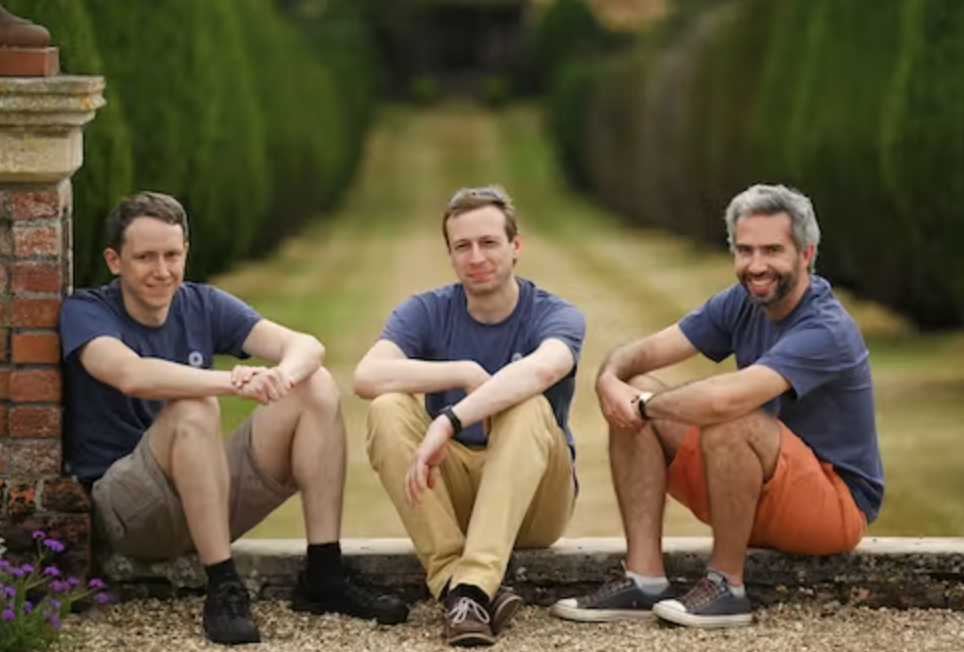Phasecraft Announces £13 Million Series A Funding Round to Reach Practical Quantum Advantage

Insider Brief
- Phasecraft announced the closing of a £13 million Series A funding.
- Playground Global led the round, joined by Albion VC and existing investors Episode1, Parkwalk Advisors, LCIF, and UCL Technology Fund.
- The company plans to use the funds to continue building its team and develop quantum algorithms that lead to quantum advantage.
PRESS RELEASE — The team of Phasecraft announced the closing of a £13 million Series A funding round led by Silicon Valley deeptech VC, Playground Global. AlbionVC also joined the round along with participation from existing investors Episode1, Parkwalk Advisors, LCIF, and UCL Technology Fund.
The company said it will use the funding to continue building the team of world-leading quantum scientists, researchers and engineers, and to ultimately develop our breakthrough quantum algorithms to the point of practical advantage – when quantum computers outperform classical computers for useful, real-world applications.
Bridging the gap between theory and reality
Quantum computing promises to revolutionise the way humanity tackles its most complex problems. However, the noisy and unstable quantum computers of today aren’t capable of running the algorithms that currently exist to solve them. Based on the best quantum algorithms known prior to Phasecraft’s founding, a useful calculation like simulating and discovering a new battery material would require billions of operations on a quantum computer – today’s best-performing hardware can perform at most thousands.
Significant recent investment in such hardware has seen it soar in capacity, but the algorithms needed to harness these advances have remained largely theoretical – to date, no algorithms have been run on a quantum computer to solve a problem of genuine practical interest. Phasecraft bridged this gap by radically reimagining how such quantum algorithms are designed, drawing on novel insights from theoretical physics and computer science, coupled with knowledge gained from extensive numerical simulations and a deep understanding of quantum hardware.
This means the company is able to develop record-breaking algorithms with significantly superior computational efficiency compared to others in existence. To date Phasecraft has published 17 scientific papers, with results including reducing the complexity of simulating the time-evolution of a quantum materials system by 400,000x, running the largest-ever simulation of a materials system on actual hardware by 10x, and proving for the first time ever that near-term quantum optimisation algorithms could outperform classical ones.
Practical applications
The company’s early focus is on applying these algorithmic improvements to the discovery of new materials important for the clean energy transition. Classical computing fails to capture many of these materials’ fundamental features, meaning we rely on experimental discovery which can take decades. Quantum computing promises to accelerate the entire process by capturing these features computationally, thus reducing the number of experiments required and drastically increasing the variety of material combinations which can be tested for any given use case.
“We’ve already developed a software pipeline which delivers an improvement of 1,000,000x or more in modelling real materials compared with the best previous quantum algorithms, bringing the number of operations required to model a material down to around 80,000 and within touching distance of existing hardware capability,” the company reports in its release.
Unrivalled expertise
The founders each bring decades of experience leading top research teams at the University of Bristol and UCL, and they report they have hired some of the world’s leading quantum scientists to help us on our mission. The company recently brought on computational chemistry and materials science expert Glenn Jones, former head of computational modelling at Johnson Matthey, to lead our materials work, whilst entrepreneur and investor Ian Hogarth, recently appointed chair of the UK’s AI Foundational Model Taskforce, is Chairman of the Board.
The release states: “We’re the only company to partner with the three most advanced superconducting quantum hardware providers in the world, Google, IBM and Rigetti, whilst industry partnerships with the likes of speciality materials developer Johnson Matthey and solar cell developer Oxford PV help inform our use case specific work.”
The new funding brings the total raised to £17.25M in venture funding, as well as a further £3.75M in grant funding from the likes of Innovate UK and the European Research Council.
Ashley Montanaro, co-founder and CEO of Phasecraft, said:“For all the advances that have been made in quantum hardware, and for all quantum computing’s promise, such progress could end up being for nothing if we can’t build the applications needed to make the technology truly useful. With our record-breaking algorithms and groundbreaking techniques, we are pushing the boundaries of what is possible in this space. With support from such a renowned deep-tech visionary as Playground, we think practical quantum advantage is achievable in years, not decades.”
Peter Barrett, general partner, Playground Global, said: “Phasecraft’s team of world-class quantum scientists and engineers bring an unmatched expertise and a fresh perspective to one of the biggest challenges facing our quantum future – bridging the gap between quantum hardware capacity and real-world applications. At Playground, we’ve always believed that unlocking quantum’s potential requires a very special, dedicated and experienced team and we believe Phasecraft is uniquely positioned to help deliver our quantum future.”
